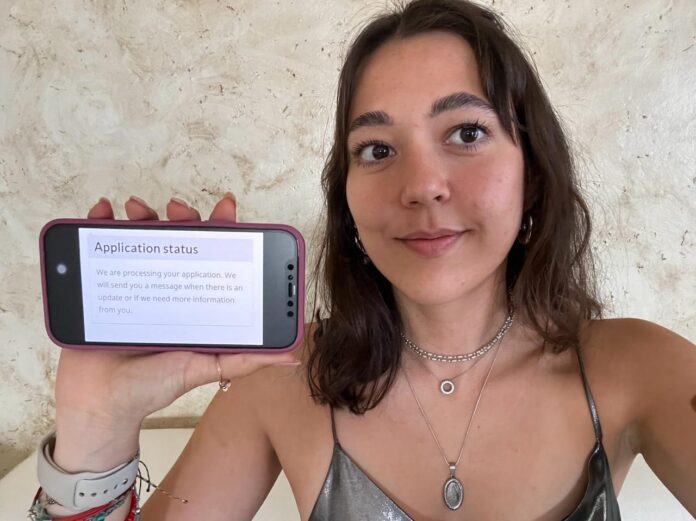

Picture this: You get accepted at a Canadian university and just when you think your plans are going smoothly, Canada announces a cap on international study permits, meaning you are accepted but perhaps not allowed.
This is the case of Claudia Guerra, a 21-year-old Peruvian who got accepted into St. Thomas University but may be affected by the federal government’s cap on international student permit applications, meant to address the housing crisis.
Related: ‘We don’t have the same issues’: STU reacts to new international student cap
The cap will result in 360,000 approved study permits nationwide in 2024, a decrease of 35 per cent from 2023. The study permits will be distributed through the provinces depending on the sustainable growth of international students.
To Guerra, this cap is closing doors for her.
“It’s frustrating because I had all my plans set. I planned on going to Canada, that was my hope and it was my ideal place to live,” she said.
Ryan Sullivan, Associate Vice President of Enrolment Management at STU, said this cap was done to address issues from private and public partnership colleges in Southern Ontario and British Columbia which had been welcoming more international students than they had seats for. However, the policy does not account for cases outside of Ontario, so Sullivan said he is concerned about the implications it will have when applied to New Brunswick.
“In Atlantic Canada we have been approaching internationalization in a reasonable, manageable and ethical way; now we’re being impacted because of the lack of management on [Ontario’s] internationalization efforts,” said Sullivan.
He explained that now, new international students will be required to pay a higher deposit towards their tuition. He suspects that it is going to be $2,500 instead of the previous $100 to ensure that the student is “serious about coming.”
Further, international students will now need to prove they have over $20,000 in addition to tuition for their study permit, an increase of $10,000 compared to last year.
“The challenge is that our application numbers are trending to be similar to last year: we had accepted 330 [international students] and we only have 200 [attestation] letters.”
“If an attestation letter is used then we can’t reuse it,” he said.
Sullivan said that it is too early as of now to determine how much this will impact STU financially but an increase in the tuition has not been “part of the conversation” so far.
This new hike in price might discourage students like Guerra, who applied before the hike was in place.
“If I’m not able to afford that, realistically speaking, the doors are closed. That’s just how the world works, right?” she said. “It’s a bridge that was burned for me.”
“[Now] I’m looking outside of Canada because it’s not affordable anymore and the situation that we’re going through in Latin America is not good.”
Backlogs in study permits
Furthermore, a backlog on the Immigration, Refugees and Citizenship Canada (IRCC) after the pandemic is having real-life consequences for students. While study permit renewals are grandfathered, long waiting times are forcing international students to pause their studies.
Such is the case of Karen Sabrina, a third-year international student at University of New Brunswick, who had to withdraw herself from this winter semester because the renewal process is taking “way too long.”
“It said that it would take between eight days and eight weeks for them to get back to me, and it’s been way over that and I still haven’t gotten an answer,” said Sabrina.
According to IRCC, to keep studying, a student must apply to extend their permit at least 30 days before it expires. After attempting to renew her Italian passport in December, Sabrina was delayed in renewing her student visa due to the many new requirements. She said that there is no one she can contact, no way of following up on the application and nothing she can do to speed up the process.
If she ends up having to re-apply for a study permit all together rather than having an extension, it is unclear if she will still be grandfathered.
“I have talked to my university but there’s nothing they can do about it. That’s what they told me,” said Sabrina. “I’ve tried everything but nothing seems to work so I need to trust that everything’s working out.”
With files from Giuliana Grillo de Lambarri.
